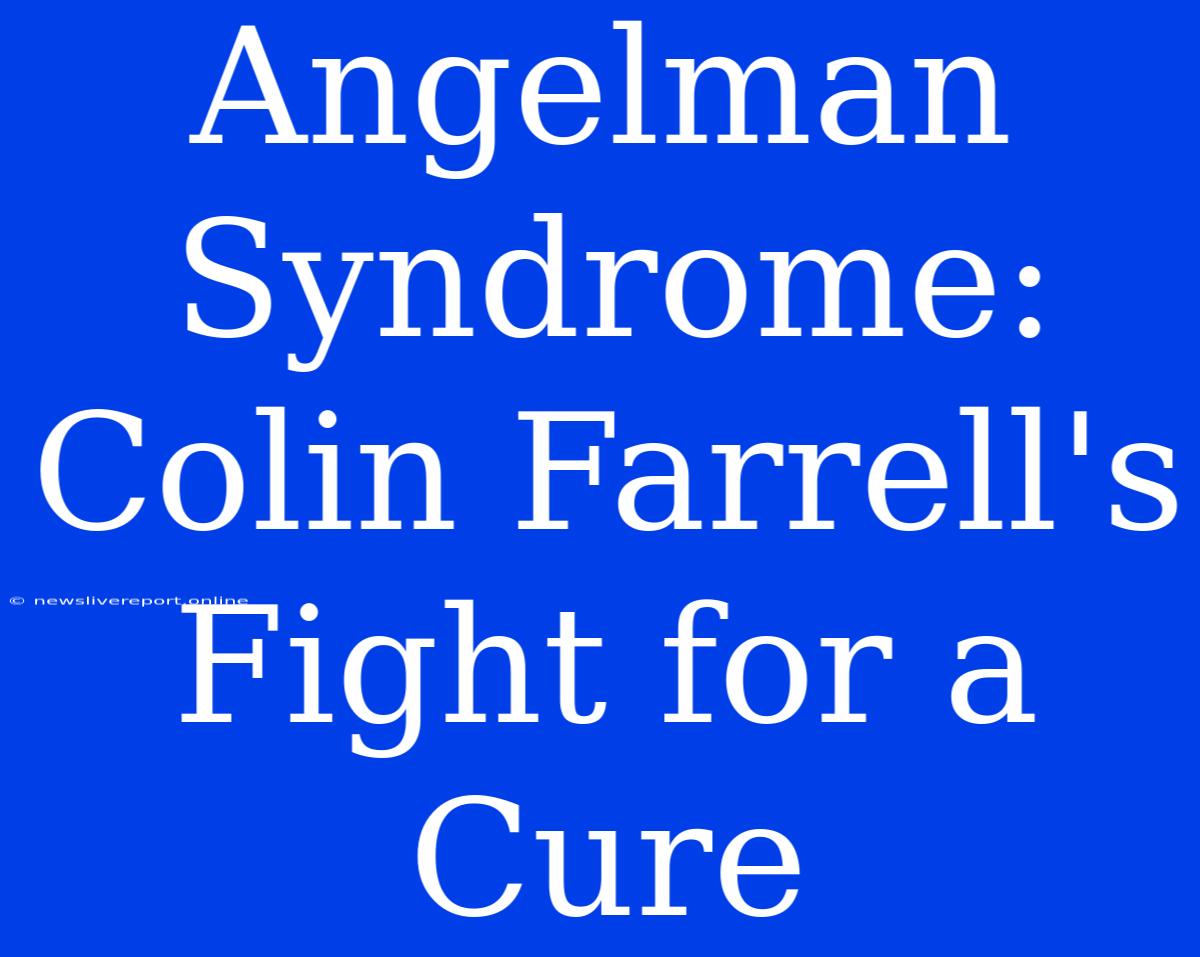Angelman Syndrome: Colin Farrell's Fight for a Cure
Angelman syndrome is a rare genetic disorder that affects the nervous system, impacting a child's development and abilities. It's characterized by developmental delays, intellectual disability, and a distinctive happy disposition. While the exact prevalence is unknown, it is estimated to affect 1 in 12,000 to 20,000 births.
Colin Farrell, a renowned actor, has brought the syndrome to the forefront of public awareness through his personal connection to it. His son, James, was diagnosed with Angelman syndrome in 2003. Farrell's advocacy has helped raise awareness about the challenges and triumphs faced by individuals and families affected by this condition.
What is Angelman Syndrome?
Angelman syndrome is caused by a deletion or disruption of a gene called UBE3A on chromosome 15. This gene is essential for the proper development and function of the brain. Individuals with Angelman syndrome often exhibit:
- Developmental delays: Including speech, motor skills, and cognitive development.
- Intellectual disability: Varying in severity from mild to profound.
- Characteristic facial features: Including a wide mouth, large tongue, and prominent chin.
- Happy disposition: Known for their frequent smiling and laughing, often referred to as the "happy puppet syndrome".
- Seizures: Experienced by a significant number of individuals with Angelman syndrome.
- Balance and movement difficulties: Including gait instability and difficulty with coordination.
- Sleep problems: Often have difficulty falling asleep and staying asleep.
- Speech difficulties: Varying levels of language impairment.
The Fight for a Cure
While there is no cure for Angelman syndrome, ongoing research is focused on developing treatments that can alleviate symptoms and improve quality of life.
Colin Farrell's Advocacy:
Farrell's dedication to raising awareness about Angelman syndrome has been instrumental in driving research and support for individuals and families affected by it. He has actively engaged in fundraising efforts, participated in awareness campaigns, and brought attention to the challenges faced by those with Angelman syndrome.
Hope for the Future
The future of Angelman syndrome research is promising. Gene therapy, targeted drug development, and innovative therapies are all showing potential to improve the lives of individuals with Angelman syndrome.
Support for Families
There are numerous organizations dedicated to supporting families affected by Angelman syndrome. These organizations provide resources, guidance, and a community for families to connect with others who understand their unique experiences.
Conclusion
Angelman syndrome is a complex condition that presents many challenges. However, through research, advocacy, and support, there is hope for a brighter future for individuals with Angelman syndrome and their families. Colin Farrell's tireless efforts to raise awareness have brought hope and inspiration, reminding us that even in the face of adversity, there is always a reason to believe in a brighter tomorrow.

